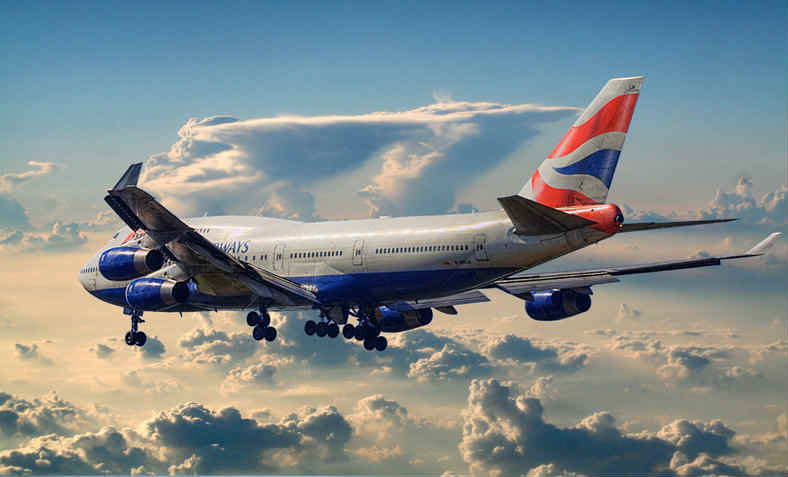 BA Boeing 747. Photo:Wikimedia Commons
BA Boeing 747. Photo:Wikimedia Commons
British Airways strikers are unrelenting in their campaign for fair pay, writes Richard Allday
Nine months into their dispute with BA, and after 65 days of strike action, the mood at Unite’s Mixed Fleet branch was remarkably upbeat. Between 150 and 200 members packed the Bedfont football club meeting room, to discuss the progress of the dispute so far, and how to take it forward. There was also social media input from members unable to personally attend (members live all around the UK, and beyond).
The fundamental cause of the dispute is the massive disparity in wages between the pre-2010 BA cabin crew, organised in Unite’s BASSA branch, and post-2010 employees, organised in Unite’s Mixed Fleet (MFU) branch. The two-tier wage structure is a result of the eventual settlement of the 2010 dispute engineered by BA in an attempt to smash union organisation in the company (BA has long had a ‘constructive’ relationship with in-house staff federations, but hates the idea of independent trade union organization). The cabin crew fought off the employer’s attack then, but the eventual truce, while protecting their terms and conditions, conceded that new starters would not be on the same contracts.
In fact, the growing discontent among Mixed Fleet (MF) cabin crew has not only been the inevitable result of two groups of workers doing essentially the same job but on vastly different rates of pay, but the dishonesty of BA in failing to honour the public promises of what the pay would be. BA has consistently denied Unite’s central claim that they are paying poverty wages to safety-critical staff. There is no dispute over the guaranteed starting rate (£12,100 pa), but BA maintains the average pay for MF crew is £18-20,000, made up through a mixture of bonuses.
MF crew dispute this, and have the wageslips and P60s to prove their point. They have challenged BA to accept a very simple resolution to the dispute: “Run a quarterly audit, and where staff are not receiving your claimed average, make up their wages to that £18,000 baseline figure. Problem solved.” (There would be other elements to a settlement – the removal of BA’s sanctions and threat of sanctions over strikers’ support for their union; a transparent rostering system; etc – but these are comparatively minor issues that BA have already signalled a wiilingness to talk through).
There are a number of interesting aspects to this dispute. First is the composition of the membership: overwhelmingly a young workforce (average age of the branch is under 30), and very diverse; a very high percentage of women members, reflected in both the reps and the branch structures (not, unfortunately, always the case in union branches); overwhelmingly new to trades unionism – for the vast majority, Mixed Fleet Unite has been their first contact with trades unionism – and this has been reflected in their dispute.
Leave aside the very public, and energetic, pickets and protests that have accompanied every strike action, what strikes you about the dispute is the almost universal statement that this is fundamentally about fairness and respect. As Ximena put it: ”The reason pay always comes up is because money is the only thing BA cares about. They only show respect to money, so that is why we insist on fair pay.”
The strikers are well aware that BA and its parent company IAG are coining it (674M profit in the 6 months to July), so there is no question the money is there to settle the dispute, and this rankles. Jeff, another MFU member put it like this: “We know the money is there. Their profits show it. So the only reason they won’t settle is not they can’t, it’s because they choose not to. They would rather lose money than show respect to the people that make their profit.”
The depth of feeling is shown in the growth of MFU’s membership. A long and bitter dispute with an employer using sanctions to intimidate and regular PR statements that the strike is having no effect, yet the branch has put on over a thousand members since they first called action, and each successive ballot has shown an increase in the numbers supporting strike action and a decrease in the numbers opposed. BA’s hard-nosed approach has spectacularly misfired, and has actually persuaded more of their young cabin crew to join the union than if they had shut up and settled in the first place. (So expect a handsome bonus to the HR and Personnel management in the next set of accounts!)
It was also refreshing to hear activists at the branch refer to the Bank of England strike, and particularly the Barts hospital strikers, with whom they recently shared a day of action. When a branch officer went on to talk of the ‘Birmingham binmen’, and the upcoming rally of bus drivers in London (Sep 14th), a striker had to point out “Other letters of the alphabet are available.”
So, upbeat, extrovert, and with an increasing understanding that solidarity stretches far and wide – and is a two way street – let’s hope the BA Mixed Fleet is a sign of things to come.
With the next few weeks probably crucial to the eventual outcome, messages of support, financial donations, and requests for MFU speakers can be sent to the Mixed Fleet Dispute, c/o Wayne King, Unite House, 99 New Road, Harlington, Middx UB3 5BQ
Strikers’ names have been changed at their request to avoid company retaliation.

